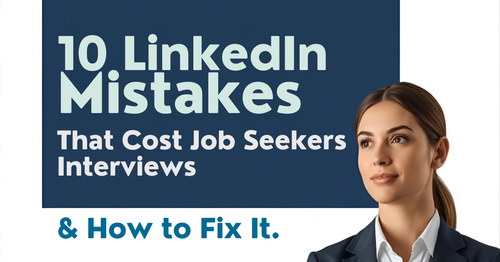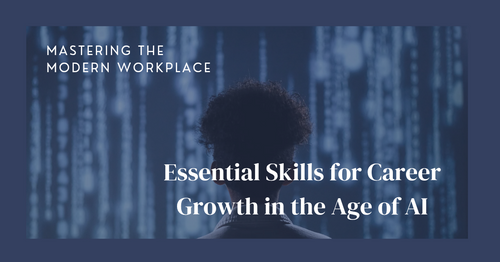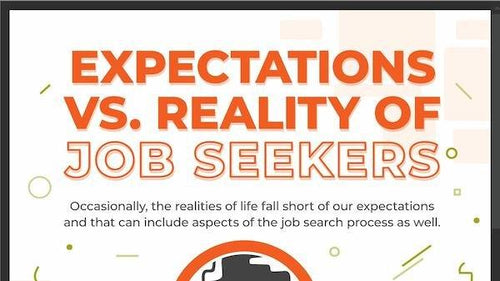
High Paying Career Paths After Learning Python
In which industry do you think there’s extensive use of Python? Learning Python programming has become one of the hottest skills of the 21st century. Python is one of the most famous programming languages due to all the benefits associated with it. Due to the ease of comprehension and versatility that Python offers, programmers use it for building complex software programs, machine learning models, etc.
Python has a wide range of applications like web development, machine learning, game development, etc. Even though people learn Python programming with the help of online courses, they are never clear about the direction of the career path they should follow. Due to the massive inflow of information, learning Python for beginners has never been so exciting!
However, after learning Python several career paths are awaiting your attention. This blog will help you explore some of the promising career paths you can explore after learning Python programming.

This blog contains affiliate links, meaning I may receive a small commission (at no cost to you) if you subscribe or buy something through the links I share. I only share links to products or services that I use myself or absolutely love!
Promising Career Paths After Learning Python
1 | Data Science
Data has immaculate value and is considered essential for making important business decisions helpful for an organization to grow. While many data scientists are aware of programming languages due to their technical background and expertise in coding, many aren’t.
Tons of programmers come from non-technical backgrounds and aren’t proficient with coding. They need to learn coding to analyze data. For such people with a bare minimum or no experience with coding, Python offers the simplicity of learning. You can learn Python coding, by spending just a few hours every day.
In data science, Python plays an essential role as it offers extensive support for third-party libraries for making complex computations easy. There are tons of useful libraries like NumPy, SciPy, Pandas, etc., which make performing mathematical functions and data manipulation efficient. Python makes data analytics techniques easy for users to learn. Also, data visualization gets easy for Machine learning algorithms.
Moreover, you have scope to grow as a data scientist because the data industry has just started growing. Organizations are gradually accepting data as the pivot point of their business and marketing strategies.
2 | Software Development
Software development is another domain in which you can use Python to work on software programs solving business needs. If as a software engineer, you have always looked forward to reducing your time to compile codes, Python will solve that problem. Python doesn’t require extra time to compile codes, which saves you time and energy.
As a programmer, you must not just be aware of just programming concepts but also time-management principles. You need to have a proper plan before writing a program to get effective results.
Also developing multi-protocol applications gets easy with the help of Python programming language. Moreover, code reusability and readability are two issues that get resolved while using Python. Also, the current demand for Python programming is very high. Due to that, the support community for Python is high. You can find online communities where you can have interactive learning experiences with different communities spread across the world. Learning experiences are always a shade better if you learn with a community rather than learning alone.
Also, the built-in frameworks for unit tests are a privilege in Python!
3 | Automated Software Testing
If you are learning Python coding, you would be aware of the fact that it would also be helpful to you in automated software testing. Python is often used to make manual tasks easy and automate them to make things easier for humans.
Python is one of the widely used programming languages used for testing web and desktop desktops, machine learning models, etc. Python is preferred due to the vast support of libraries one gets, which makes coding efficient.
Moreover, Python is used for software testing in almost every domain. You will find Python is widely used in the energy and automobile manufacturing sector, where there’s a dire need to automate processes and make them efficient.
4 | Freelancing
Freelancing is another career path you can choose after learning Python. There are tons of programmers out there working for clients globally with the help of freelancing websites that provide them access to a variety of Python programming projects.
Nowadays the scope of freelancing has increased a lot, as more and more businesses are moving out to hybrid models where they hire freelancers to work on different projects. Especially after the COVID-19 pandemic, where businesses had to increase their digital presence and work under restrictions, freelancers have found a plethora of opportunities to earn handsomely.
Also, it’s not just about freelancing through online platforms but also reaching out to local businesses which might have specific custom software and IT infrastructure requirements.
Python is one of the coolest skills to acquire in the 21st century. There’s a huge demand for Python programmers as businesses want to increase their digital footprint. The best part about this discussion is that anyone can learn coding with the help of online learning resources. You can learn Python by enrolling in a high-quality Python programming course that explains all the concepts easily with the help of relatable examples. Such courses offer clarity on all the concepts and provide you with in-depth knowledge of the domain. Also, don’t forget to enroll in a course that comes with an end-to-end project that gauges your knowledge. Online courses are also helpful for gaining business and domain understanding. Remember, to get the most effective results you must invest in learning resources that are helpful in the real sense.
Related Articles
-

10 LinkedIn Mistakes That Cost Job Seekers Interviews (How to Fix It)
Guest blogger outlines how to avoid these LinkedIn mistakes to drastically improve your chances of being noticed, whether you’re actively job hunting or just trying to grow your professional presence.
-

Guide To Choosing A Career In SaaS
Thinking about a career in SaaS? Guest blogger Jacob Wickett shares top roles, key skills, and how to break into this fast-growing industry.
-

Mastering the Modern Workplace: Essential Skills for Career Growth in the Age of AI
Guest blogger Sadie Smith shares a comprehensive guide to help professionals navigate unprecedented changes driven by technological advancement with confidence.
-

Navigating Your Career Path with a Family Nurse Practitioner Degree Program
Guest blogger Sadie Smith reveals how strategic planning in your healthcare career broadens your impact on patient care and community health.
-

Career Transitions: Navigating Your Path to Success in Healthcare and Beyond
Guest blogger Sadie Smith shares how to leverage your existing skills and experience while pursuing new career opportunities in healthcare and other industries.
-

Breaking Barriers: A Guide to Empowering Women in Manufacturing Leadership
Guest contributor Sadie Smith shares this comprehensive guide on how women can reshape the manufacturing industry landscape with actionable insights.
-

Navigating An Evolving Job Market With Strategies For Success
To thrive in a dynamic job market, you need to continuously adapt your job search strategies. Stay informed and flexible to position yourself for success.
-

Can Workplace Harassment Occur Over Social Media?
Guest blogger Caren Sainz breaks down how to set clear boundaries and seek legal assistance if you're a victim of workplace harassment over social media.
-

4 Personal Assistant Interview Questions and Answers
Guest blogger Liza Griffen, co-founder of Tyler Griffen, equips you with a deep understanding of typical interview questions and practical answers to help you showcase your skills effectively whether you're aiming to impress in your first personal assistant role or looking to step up in your career.
-

Crack Your Dream Company Interview
Guest contributor Nandkishore Rathi shares practical tips, strategies, and insightful advice from career experts to help you shine during written and verbal interviews.
-

Exploring The Realities Of Job Hunting (Infographic)
Guest contributor Joseph Matalone delves into common expectations in job seeking and the contrasting realities.
-

Don't Panic: 15 Ways To Prepare For A Video Interview
Guest blogger Daniel Boyce with Aware Recruiter delves into 15 actionable steps to prepare you for a stellar video interview experience whether you're a seasoned professional or just stepping into the job market.
-

5 Signs That A Company Values Employee Wellness And Safety
Guest blogger Sharon Feldman shares how asking questions about wellness and safety in your interview could give you insight into a company’s values.
-

Can An Employer Fire You For Being Sick?
Many employers can terminate an employee for falling sick frequently. Guest blogger Natalie Padilla shares all you need to know regarding being fired by an employer.
-

Tips On Building A Positive And Supportive Workplace
Guest blogger Adam Blacksmith shares how to embrace communication, celebrate diversity, and empower your team for success by fostering a positive and supportive workplace culture.
-

AI: Transforming Networking, Interviews, and Careers
Guest Author, Dean Fankhauiser. discusses how AI is revolutionizing networking, interviewing, career planning, and professional advancement.
-

Preparing for Different Interview Formats: Phone, Video, and In-Person
Interview Coach Ellie Hoekman shares specific preparation steps for phone, video, and in-person interviews.
-

Negotiating A Competitive Salary
Guest blogger Rohan Singh shares strategies for negotiating a fair salary that reflects your worth and fulfills your goals.
-

Can My Employer Ask Why I’m Taking A Sick Day?
Guest blogger Samantha Larson shares whether your employer has the right to ask you why you are sick and how much information they are entitled to when you take a sick day at work.
-

The Benefits of Coaching in the Workplace
Guest blogger, William Powell, shares some of the concrete examples of the benefits associated with employee coaching.
-

10 Facts & Stats About Sexual Harassment in the Workplace
Guest blogger Sharon Feldman shares how many people experience harassment every day, including at their place of work, to increase awareness.
-

The Ultimate Temping Guide for Beginners
Guest blogger Auria Heanley with Oriel Partners shares insight into what a temp job is and what to expect in order to make the most of a new job opportunity.
-

How To Ace Your Interview With A Staffing Agency
Guest blogger William Powell shares how to prepare adequately for an interview with a recruiting agency to increase your chances of landing your dream job.
-

How Do You Know When It's Time To Quit Your Job?
Guest blogger Katie Meyers shares when quitting your job is the right thing and how to go about it.
-

5 Things You Need To Know About Job Interviews To Succeed
Guest blogger Marcus Ralph shares 5 tips on what you can do before a job interview to be best prepared to make a solid first impression and land the job.


























